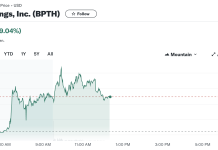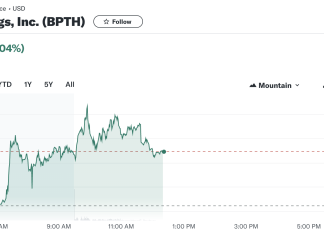atai Life Sciences N.V. (NASDAQ: ATAI) has announced that the US FDA has given it an Investigational New Drug approval to carry a clinical DDI study of PCN-101 (R-ketamine). Perception Neuroscience, atai’s platform firm, hopes to start the study in early 2022. The clinical DDI study will accompany the current Phase 2a proof-of-concept study in treatment-resistant depression (TRD).
PCN-101 has a fast onset and anti-suicidal effect
PCN-101’s distinct features could distinguish it from presently offered antidepressants and fulfill crucial patient demands, such as the potential for fast onset and anti-suicidal effect. In this patient population, rapid onset of action is critical, however mainstream selective serotonin reuptake inhibitors (SSRIs) could take up to 12 weeks to provide maximum efficacy, and suicidality affects up to 30percent of TRD patients at some point in their lives.
R-ketamine has shown in preclinical animal studies of depressed behavior that it has the potential to provide longer persistence and possibly favorable tolerability and safety profile relative to S-ketamine, allowing for at-home use. In addition, after an intravenous infusion of another R-ketamine formulation, patients with TRD experienced a quick, sustained antidepressant response with limited dissociative side effects, according to a third-party, open-label trial.
IND will allow the advancement of PCN-101 in the US
CEO and Co-founder of atai Life Sciences Florian Brand said, “We see great promise in PCN-101 as a potentially rapid-acting antidepressant with a more favorable safety and tolerability profile than S-ketamine, which could enable at-home use. With today’s IND clearance, we are excited to continue assessing the therapeutic potential of PCN-101 in the U.S., where, like elsewhere in the world, many patients struggle with treatment-resistant depression and desperately need innovative therapeutic options.”
Perception Neuroscience CEO, Terence Kelly, commented, “TRD represents a large percentage of people with severe, difficult to treat depression who have failed to sufficiently respond to at least two different antidepressant treatments. We believe that PCN-101 has the potential to offer a differentiated therapeutic effect, in terms of both efficacy and ease of administration, for clinicians and patients, as a potentially rapid-acting antidepressant.”















